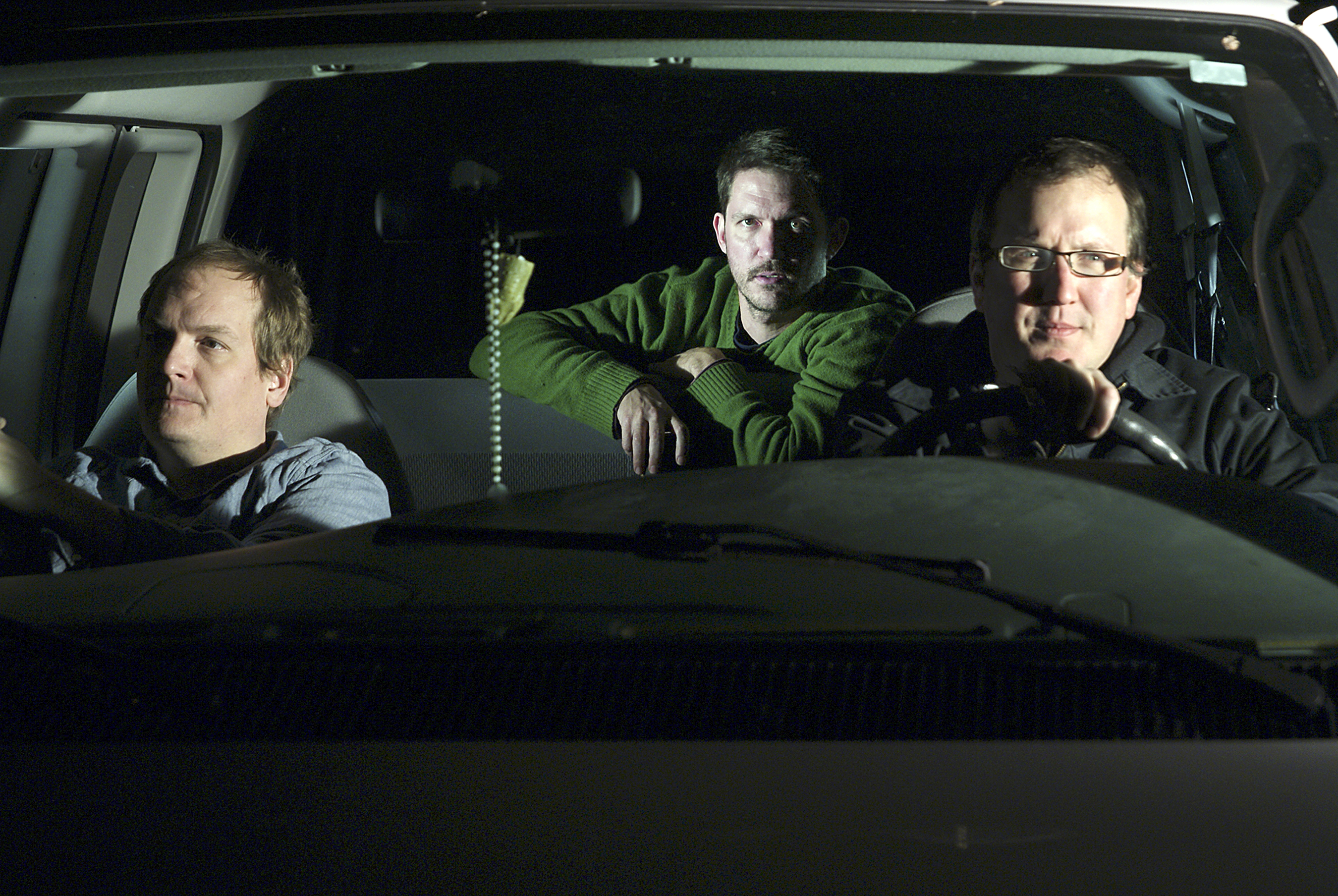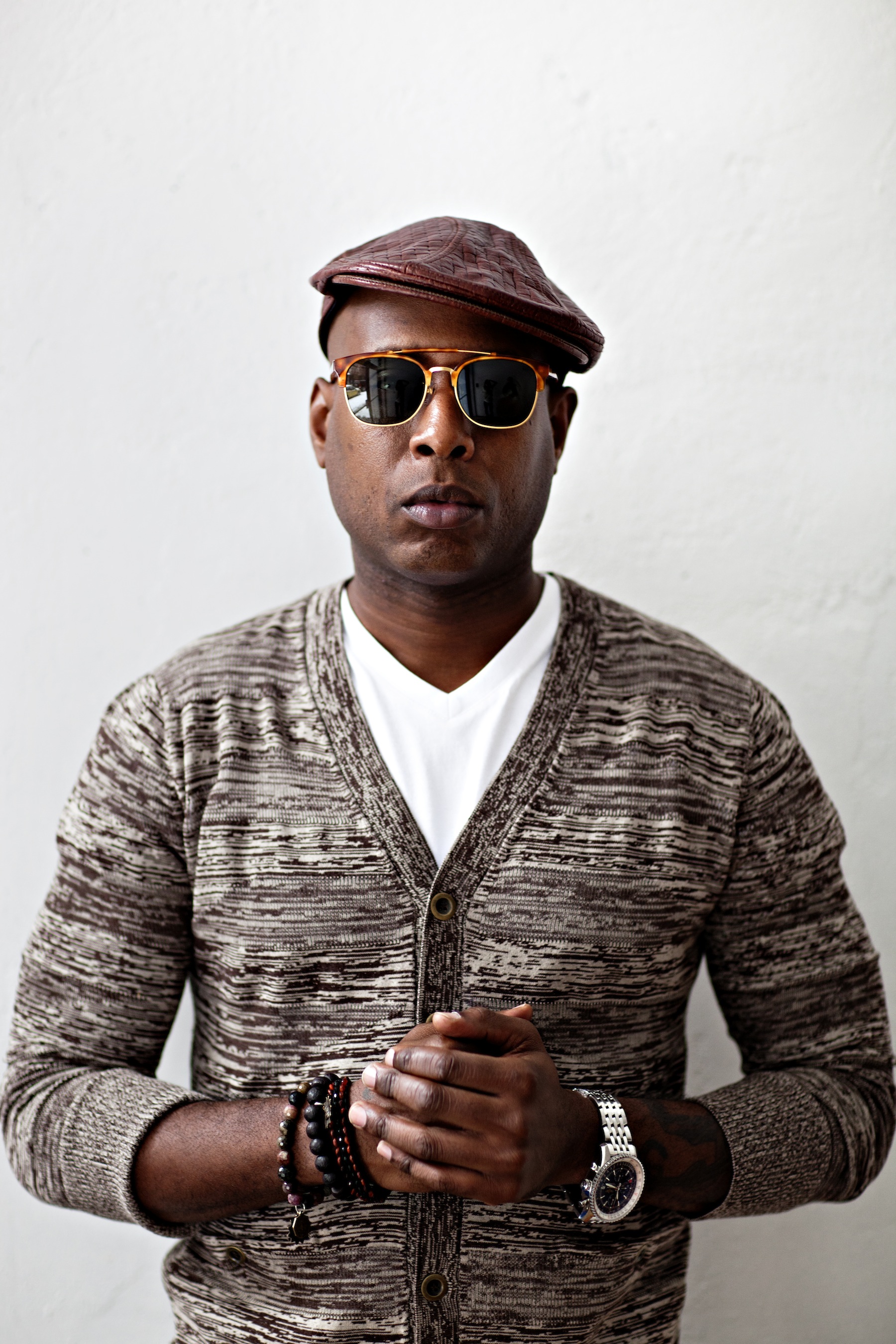In 2003, Omaha emo band Cursive released the pivotal album The Ugly Organ. The New York Times had just crowned the Nebraska city the indie capital of the world, and Cursive was about to quadruple the number of eyes upon it. Its Saddle Creek labelmates Bright Eyes and The Faint had recently become tastemaker darlings; now it was Cursive’s turn to shine.
With its hush-to-roar dynamics and wounded howl dueled with an introspective cello, Rolling Stone called The Ugly Organ a “brilliant leap forward.” Alternative Press gave it a perfect score, and MAGNET said it was “the best punk record you’ll hear all year.” The album was a landmark for Saddle Creek, peaking at #9 on 2003’s Top Independent Albums chart while being the label’s second album to break 100,000 copies sold.
Twelve years later, those who missed The Ugly Organ the first time are getting a second chance. In November, Saddle Creek announced a
deluxe reissue, to include eight additional tracks. We spoke with frontman Tim Kasher to talk about why he originally doubted the album would be critically successful, what it was like playing in Omaha’s vibrant music scene in the early 2000s, and how the album’s sexual tension will unfold during the band’s Seattle Valentine’s Day show.
SW:
In a radio.com interview, you said you have a love/hate relationship with this album because of the memories from the time of its recording. Why?
Kasher: Oh, I don’t know. I was probably just rambling on about something. [Laughs.] I recall feeling dissatisfied with it, but it was also extremely important to me at the time, as any record is while I’m working on it. I was/am certainly proud of it striking a chord with people, yet it also used to concern me, that perhaps I was guilty of trying to write something overtly commercial. I was just being hypercritical of myself, which is fairly par for the course.
The Ugly Organ
took big chances in production and songwriting. It’s alleged that when you recorded it, you felt Cursive had gone too far and might alienate listeners. Rumor has it you gave the band a pep talk so members wouldn’t be discouraged if fans didn’t respond to the album. Why did you feel that way?
Sure. I had felt, at the time, that we had gone too far down our own rabbit hole of ideas and that they wouldn’t translate to others. I also felt a bit grossly solipsistic, and assumed that wouldn’t resonate with anyone. I’m ecstatic to this day that people get a kick out of that record, though I’m still a bit puzzled by it.
In retrospect, it’s sort of funny you questioned how fans would react. The album ended up influencing a generation of musicians and fans. Did putting out a critically successful album increase expectations for the follow-up,
Happy Hollow
? Have you felt like you’ve had to live up to
The Ugly Organ
for the rest of your career, and how has that affected the band?
Sure, I think putting out a larger success puts pressure on following releases, though it can be all in your head, and I would discourage falling for those pressures. I have felt pressure to follow up every record I’ve done, despite its success, merely because I want to keep writing what I (and, hopefully, my friends and curious listeners) consider to be quality work. I’ve learned not to concern myself with a larger success such as The Ugly Organ, as I have no expectations to release an album that resonates with that many people again.
Talk a bit about the Omaha scene in the early 2000s. Bright Eyes, The Faint, and all the Saddle Creek bands were bringing the city more attention. What was it like living in a place that was exploding nationally?
Not sure I can relate to other experiences, as I haven’t had those experiences. I’ve lived in other cities, but haven’t gone through that same experience in other cities. My hunch is that bands in larger cities may have been more aware of what was going on around them. We felt fairly oblivious, which I think is great. It was also a time before excessive social media inundating all facets of our lives, so perhaps we were still able to live under the proverbial rock, at least a little bit.
Did that help nurture your music by insulating you from external influences and allowing you to focus on your music?
I can’t really be sure; I’d assume so, as we are influenced by practically everything in our respective environments. I appreciate growing up in a smaller city.
What has it been like revisiting this period with the reissue of
The Ugly Organ
? You don’t strike me as someone stuck on nostalgia.
I look forward to the tour, as it is the rare opportunity to simply go out and play without the anxiety of whether people are interested or responding to a new album or not. And you’re correct: I’m not particularly interested in nostalgia. Cursive hasn’t toured in a couple years, so for us, this is just a chance to get together, to get out and play. Most likely we would have toured right now regardless. This reissue just gave us something to rally around. We are still playing our entire catalog. It’s just more heavily focused on songs from the reissue.
A deep, resonant cello is juxtaposed against aggressive guitars on
The Ugly Organ
, creating a unique dynamic. At times, your cellist builds tension; at others, the yearning of the cello brilliantly softens the mood. How did you decide to make that instrument such a prominent part of the record?
Bringing in cello was a way for us to differentiate ourselves from the two-guitar/bass/drums style that seems to be the root formation of rock ’n’ roll. It was just how I was feeling at the time. Post-Domestica, we felt we needed to push in a different direction.
Throughout your career with Cursive and as a solo artist, your lyrics have always told stories that seem personal yet relatable to your audience. They feel like short films. “The Recluse” from
The Ugly Organ
is a great example. You whisper the words about waking up in the bed of someone you hardly know. Your voice sounds vulnerable like the character in the song. When you write lyrics, do you write a story first and then pen the song’s words to match your melody?
It varies per song. Most often I’m trying to fit lyrics into a melody, then trying to shape those lyrics into a cohesive idea/story. Other times I do have a story in mind, and have to plug that story into the parameters of the verse.
Even the album’s title sounds like a short story. Where did it originate? Rumor has it your lung collapsed shortly before recording the album. Were your lungs the “ugly organ?”
My lung collapse was a funny coincidence. I can’t remember for sure, but I think the title came prior to the collapse occurring. I recall not relating the two, not until others started piecing it together. It felt a bit like life reflecting art and vice versa. All this said, I’m comfy with a title such as The Ugly Organ being up for interpretation.
Sex organs are certainly prominent on the record. The characters face frequent sexual tension and sexual misadventures. You guys play Seattle on Valentine’s Day. Will it be weird to sing about “the ugly organ” on this day of affection, or is it the perfect coincidence?
Every day is like Valentine’s Day for us. [Laughs.] There have been a few folks reaching out to mention that they are coming to the show with their significant other. I think that’s pretty funny and fun. With any luck, they can end the night with a big blowout fight.
Do you have any special Valentine’s Day surprises for the show?
I don’t, but I guess I should, huh? Flowers for the audience? Chocolates? Is this a date?
Yes. A date it is.
music@seattleweekly.com
CURSIVE With Beach Slang, Slow Bird. Neumos, 925 E. Pike St., 709-9442, neumos.com. $17. All ages. 8 p.m. Sat., Feb. 14.








